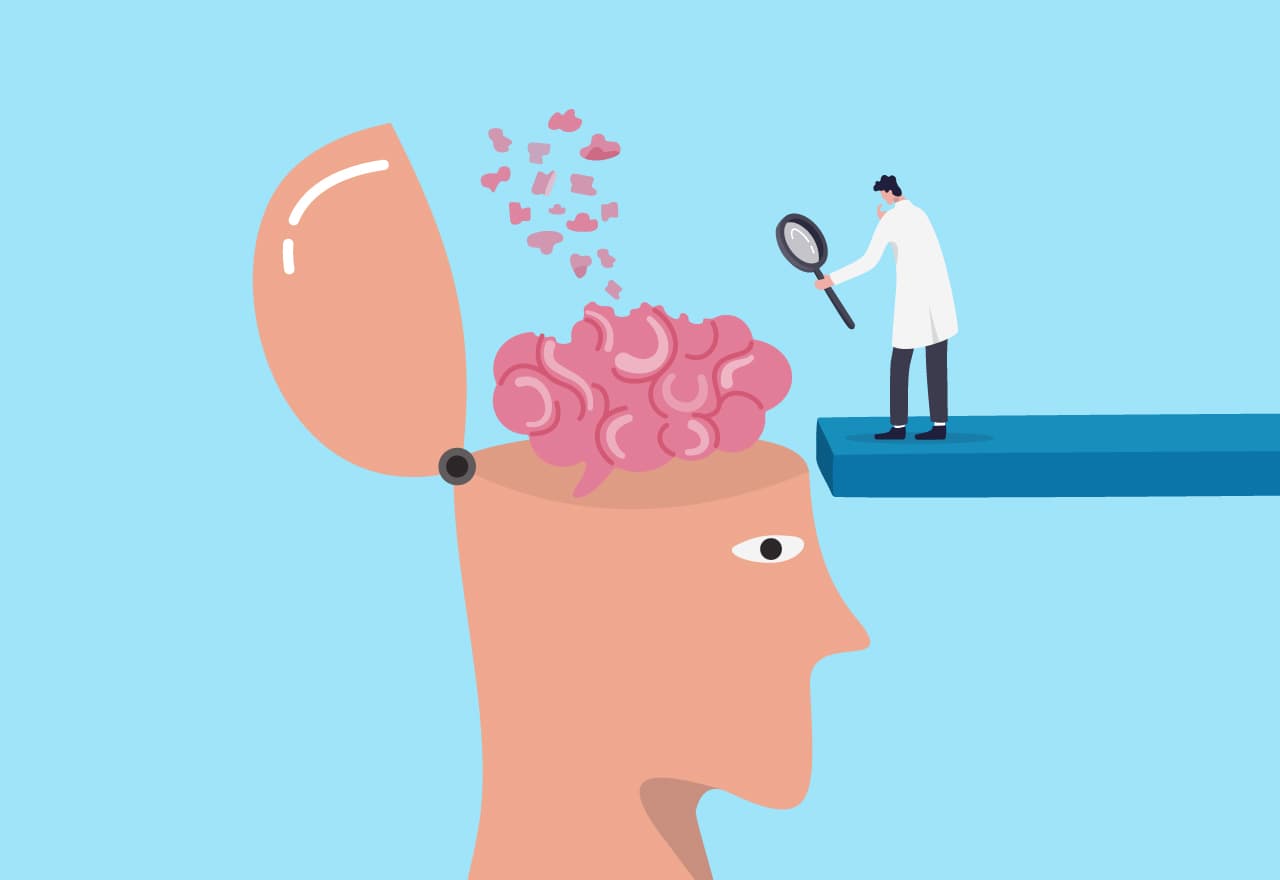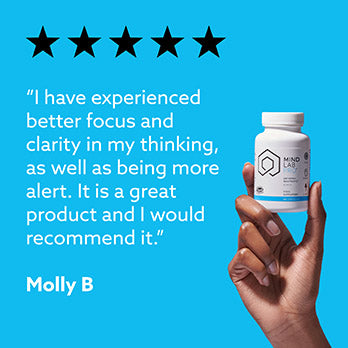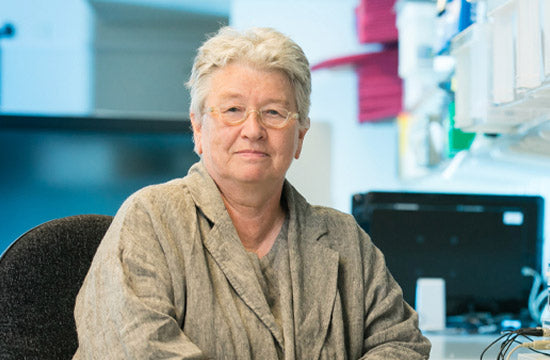I think my parents might be gaslighting me.
My sister and I went back home for a family event, and my mom cooked everyone an incredible lunch.
For dessert, she made jello and ice cream. My favorite...apparently.
Now I wasn't going to be ungrateful and tell her I've never liked jello. Or that I only ate it as a 6-year-old because of peer pressure. But my sister, who's less subtle, wasn't so bothered...
"We hate jello." She said.
A heated debate ensued. With my mum calling for back-up from all family members present.
Long story short: multiple people were willing to give evidence that we'd got it wrong. Memories were recollected of birthday parties and family gatherings. It turns out, the entire family knew our taste buds better than us.
I concluded that either my memory was failing, their memory was failing. Or the entire family didn't care - but just wanted to get stuck into the jello.
Either way, this kind of mass false memory is not uncommon. And it's known as The Mandela Effect.
What is the Mandela Effect?
The Mandela Effect refers to a phenomenon where a large number of people remember an event or detail differently to how it occurred. The phenomenon is named after Nelson Mandela, because many people falsely remembered that he died in prison in the 80s. Even recalling news coverage of his funeral. He actually died in 2013.
How do large groups misremember the same thing?
If everyone has shared the same experience, wouldn't their collective memories serve as a mutual 'fact-checking' system? In theory, if someone's recollection strayed from actual events, wouldn't the consensus of the group correct this misremembering?
"Never let the truth get in the way of a good story."
British psychologist Frederic Bartlett (1) explored the idea that people store and recall information according to 'schemas' rather than what really happened. Our memory isn't a direct download. It doesn't faithfully play back the exact experience.

Instead, it reconstructs it. In a format we can make sense of. We're trying to make our memories fit in with what we already understand and expect. Those understandings and expectations are our schemas. (2)
The Psychology Behind Schema
Schemas are like the building blocks of our memory. As we grow and have more experiences, our schemas are being adjusted and added to.
Bartlett suggests we have a schema for all sorts of things. For example, we'll have a schema for what counts as a holiday. If your 10-year-old self was asked to draw what comes to mind when thinking of a holiday, they might draw sandcastles and ice creams.
Now ask your 21-year-old self the same question, and it might be sun-loungers and cocktails. We have schema for what a criminal looks like, what a Saturday night should entail, and who should pay the bill on a first date.
Schemas are based on experience and expectation.
The more difficult a memory is to recall, the more likely it is that elements will be forgotten. Or our schema will make distortions to that memory. It does this in the following ways:
Confabulation
When we struggle to recall a memory, we put pressure on our minds, and our schemas fill in the gaps. This is known as confabulation. There might be some truth in there, but we fill in the blanks with something we're familiar with. Which can result in a story that sounds real but isn't. It's unintentional and is often seen in patients with dementia, Alzheimer's, and brain injuries.
Assimilation
This is where new information is incorporated into pre-existing schema. Your mid-twenties self might've balked at the idea of a walking holiday. But your mid-thirties self quite enjoys the fresh air, beautiful scenery, and the endorphins you get from an active holiday. We're integrating new information into existing schemas, allowing our understanding of concepts to grow and change.
Accommodation
This involves creating schemas to incorporate new information that doesn't fit into existing schemas. For example, family structures. A child might grow up understanding a family as consisting of a mum, dad, and sibling. As they meet more children with different variations of family structures, they see family in more ways than just two parents and two children.
Bartlett tested his schema theory in a study he called 'The War of The Ghosts'.
'The War of the Ghosts' Reconstructive Memory Study
The War of the Ghosts was a Native American ghost story with some interesting features. There were twenty participants for this exercise. All of them were English undergraduates at Cambridge University.
It's fair to say this tale was like nothing they'd ever been read at bedtime. And that's exactly why he chose it.
It was culturally unfamiliar.
He asked the participants to read the story, and then engage in what's known as a serial reproduction task. Where they were asked to recall and recount the story multiple times over varying intervals-ranging from a few hours to days, weeks, and even years. This method allowed Bartlett to observe how the story evolved with each retelling. Throughout this process Bartlett found the story was consistently distorted.
And there was a pattern to this distortion.
Bartlett's Schema Theory

Bartlett observed three main commonalities in the participants' recounts of the story:
- The story was modified. There were a lot of confabulations going on. Details were adjusted to better align with British cultural norms.
- The story was leveled. Every time the story was recalled, it got shorter. Meaning that any information they felt wasn't important, got ignored. Leveling simplifies the narrative. Making it easier for that individual to recall.
- Participants changed the order of the story so it made sense to them. They rationalized it. Along with changing the order, they often changed the details too.
The results showed the participants were able to recall the main themes of the story. But they changed any elements that didn't make sense, or were unfamiliar to them. In essence, we reconstruct memories to fit in with our schemas.
Key Takeaways
There's good news and bad news. The bad news is we can't rely on others to fact check our memories.
It's our memory. It's on us.
The good news is, understanding that everyone's memory is a bespoke blend of their own schemas, makes it easier to understand each other.
Take the jello debacle for example. My family's recollection isn't inaccurate. It's just their schema for 'favorite dessert at a family get together' - hasn't assimilated past the 80s.
It's quite sweet really.
It's not a case of being right or wrong, it's about understanding that our memories are shaped by a complex mix of personal experiences and cognitive processes.
There's not much we can do about personal experience. But if we want to make sure our cognitive processes are at their best, incorporating Mind Lab Pro® into your daily routine can help.
Our studies, that were similar to Professor Bartlett's, showed that taking Mind Lab Pro® for 30 days resulted in a 28% average improvement in immediate recall, and a 26% average improvement in delayed recall.




































